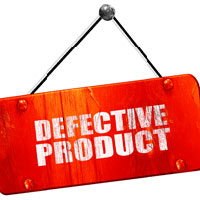How Medical Device Manufacturers Respond to Defective Products
October 5, 2018 Researchers from the Indiana University Kelley School of Business and the University of Minnesota’s Carlson School of Management conducted a study recently that looked at how medical device manufacturers handle product recalls if a product or device is defective. The results of the study found that managers often rely on customers, including physicians and other medical professionals, to screen out defects rather than issue a product recall. To avoid the financial repercussions of a recall, managers tend to wait until they have a better understanding of the defect before proceeding with a recall.
Researchers from the Indiana University Kelley School of Business and the University of Minnesota’s Carlson School of Management conducted a study recently that looked at how medical device manufacturers handle product recalls if a product or device is defective. The results of the study found that managers often rely on customers, including physicians and other medical professionals, to screen out defects rather than issue a product recall. To avoid the financial repercussions of a recall, managers tend to wait until they have a better understanding of the defect before proceeding with a recall.
The researchers performed a randomized behavioral experiment with managers from a range of medical device companies to better understand how key factors influence their decision to recall a product. According to the study authors, making the decision to proceed with a product recall can have a significant impact on the manager’s career. Not only can it affect the company’s credibility and financial success, it can also jeopardize the safety of its customers. Managers tend to base their decisions largely on their own individual judgment.
The lead author of the study reported that managers of medical device companies believe that physicians who use the devices will screen out the defects on their behalf. If a physician detects a defect, a manager is less likely to recall the product. The researchers also found that managers were not inclined to recall a product until they had a clear understanding of what caused the defect. However, waiting to recall a defective product until the root cause is discovered can be beneficial from a financial standpoint, but harmful to patients.
Impact of Cognition on Recall Decisions
Results of the study also found that there was a connection between a manager’s cognitive skills and their decision to recall a product. For example, managers who scored high on cognitive reflection and who were able to make quick, intuitive decisions tended to issue fewer recalls because they were more likely to seek out information before deciding. However, managers who were non-reflective were influenced more by factors like gender, work experience, and the company’s relationship with the Food and Drug Administration.
Researchers believe that the results of this study have implications beyond medical device manufacturers. For example, the auto industry is another example of an industry that has a multi-stage supply chain. Like device manufacturers who depend on physicians to detect defective products, auto manufacturers may depend on dealers to identify defective parts before vehicles are sold to customers.
Baltimore Medical Malpractice Lawyers at LeViness, Tolzman & Hamilton Seek Compensation for Victims of Defective Medical Devices
If your healthcare provider used a defective medical device that caused you to become seriously injured, do not hesitate to contact the Baltimore medical malpractice lawyers at LeViness, Tolzman & Hamilton. We will protect your legal rights and obtain the maximum financial compensation you deserve for your injuries. Our dedicated team will not stop fighting for you until justice has been served. To set up a free, confidential consultation, call us today at 800-547-4LAW (4529) or contact us online.
Our offices are located in Baltimore, Columbia, Glen Burnie, and Towson, allowing us to represent medical malpractice victims in Maryland, including those in Anne Arundel County, Baltimore County, Carroll County, Harford County, Howard County, Montgomery County, Maryland’s Western Counties, Prince George’s County, Queen Anne’s County, Southern Maryland, and the Eastern Shore, as well as the communities of Catonsville, Essex, Halethorpe, Middle River, Rosedale, Gwynn Oak, Brooklandville, Dundalk, Pikesville, Nottingham, Windsor Mill, Lutherville, Timonium, Sparrows Point, Ridgewood, and Elkridge.






